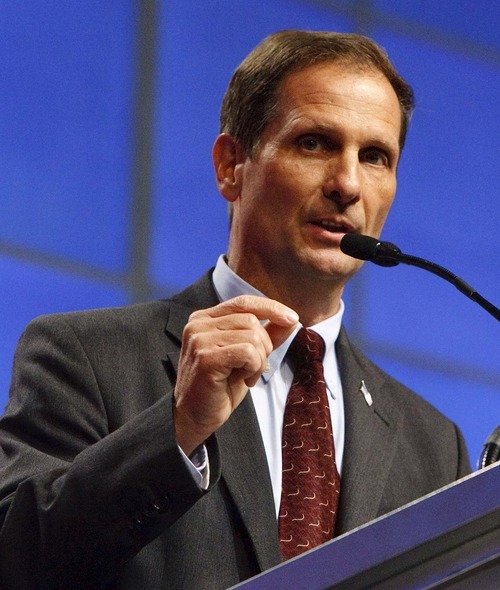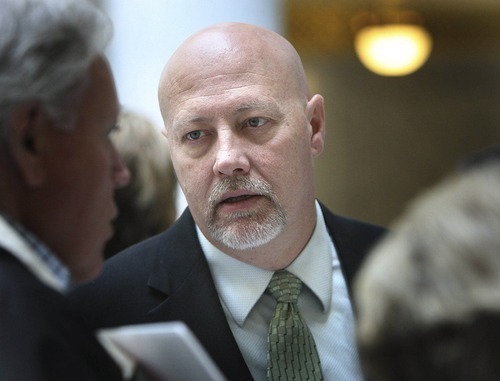This is an archived article that was published on sltrib.com in 2012, and information in the article may be outdated. It is provided only for personal research purposes and may not be reprinted.
Saving Social Security reform must include allowing young adults an option to invest that money in private accounts, Republican congressional candidate Chris Stewart said at a taped debate Wednesday.
But Jay Seegmiller, his Democratic challenger in the 2nd Congressional District race, disagreed quickly and succinctly.
"Chris' plan is to change it and privatize it," Seegmiller said. "I wouldn't support that."
It was the second debate between the candidates and for about 20 minutes, they were pressed, pushed and prodded by KUTV-2 moderator Rod Decker on a series of budget proposals. The two candidates are battling for the seat occupied by U.S. Rep. Jim Matheson, D-Utah, who chose this year to run in the newly created 4th Congressional District.
Decker framed the discussion around the concept of a "big deal" that could be presented to Congress in January that would offer a series of spending cuts and tax increases to help rein in the federal deficit.
It was mostly based on the National Commission on Fiscal Responsibility and Reform, which convened in 2010 under the leadership of Alan Simpson, a retired Republican senator from Wyoming and Erskine Bowles, a Democrat and former White House chief of staff.
In the commission's final report, it outlined Social Security reform and called for raising the retirement age while reducing benefits on an income-based sliding scale.
Stewart defended his proposal that would allow workers under 55 to invest a third of their Social Security tax into a private retirement account.
"We want to reform it and we can fix it," Stewart said. "There is nothing compassionate about letting Social Security go bankrupt — and it will if we don't do something about it."
But Seegmiller said he would support a Simpson-Bowles approach, that cuts need to be looked at in a "balanced approach," which includes cuts to defense spending.
"Everything has to be on the table," Seegmiller said. "I think defense should on the table and be an area we're looking at."
Stewart, a former U.S. Air Force pilot, disagreed.
"It's the only thing this administration has cut," Stewart said. "I can tell you we still live in a dangerous world. We have to keep our eye on national security."
Decker also asked, given the circumstances in the Middle East, would the candidates be willing to go to war. Stewart said war is "a tool" Congress has and that he would engage in cases of national security — including an attack on Israel.
But Seegmiller said he'd be more reluctant to pull the trigger on military action and said even an attack on Israel wouldn't necessarily be a reason to go to war.
"It would take something pretty bad," Seegmiller said. "It would have to be a direct threat to our country."
The candidates also disagreed on immigration, with Seegmiller saying he would support legislation that hews closely to President Barack Obama's initiative modeled after the DREAM Act that rewards children brought to the country by their parents illegally. Stewart said he wouldn't vote for that version and instead said he would only vote for that style of legislation "depending on how it was written."
Outside the studios during the taping, third party candidate Joe Andrade and a dozen protesters picketed, complaining about being excluded from the debates.
The debate will air 11:30 a.m. Sunday on Channel 2.
Twitter: @davemontero





